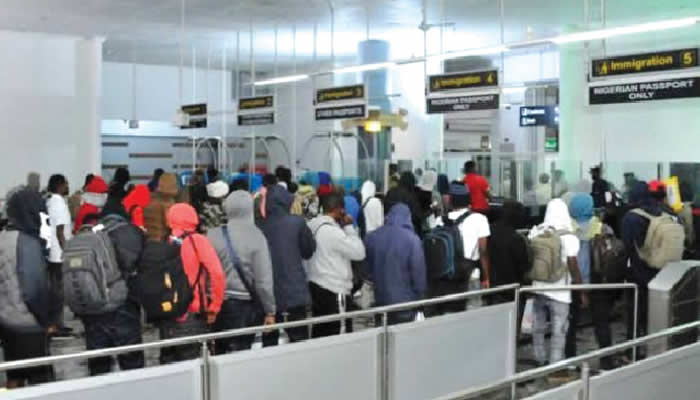The allure of greener pastures abroad has become a powerful siren song for Nigerian youths, luring them away from their homeland in search of better economic opportunities and a brighter future. The rising tide of emigration, estimated at over 3.6 million between 2022 and 2023, reflects the deep-seated economic challenges and pervading sense of hopelessness plaguing the nation. While the pursuit of a better life is a universal aspiration, experts caution against undertaking the journey without thorough preparation and a clear understanding of the potential pitfalls. Recent discussions at the ‘APA Conference: Beyond Borders’ highlighted the need for a more measured approach to migration, emphasizing the importance of strategic planning and realistic expectations to mitigate the emotional and psychological risks. The conference served as a platform for experts and community leaders to address the complexities of migration and guide Nigerian youths toward making informed decisions about their future.
The escalating number of Nigerians seeking refuge in foreign lands underscores the severity of the economic hardship gripping the nation. With the escalating cost of living, limited job opportunities, and a pervasive sense of insecurity, many young Nigerians view emigration as the only viable escape route from their precarious circumstances. The International Organisation for Migration estimates a staggering 17 million Nigerians currently reside in the diaspora, a testament to the scale of this ongoing exodus. While developed nations like the United Kingdom, with an influx of approximately 52,000 Nigerian migrants in 2024 alone, offer the promise of stability and economic advancement, the journey is fraught with challenges and uncertainties. The decision to migrate should not be taken lightly, as it requires careful consideration of various factors, including financial resources, emotional preparedness, and a realistic assessment of the potential obstacles.
Experts warn that the allure of greener pastures can often blind individuals to the harsh realities of life abroad. Dr. Adeoye Oyewole, a psychiatrist, emphasized the emotional and psychological toll that migration can take on unprepared individuals. He highlighted the increased risk of depression, drug abuse, and criminal activity among migrants whose lofty expectations are shattered by the challenges they encounter in their new environments. Many embark on this journey without a clear plan, leaving them vulnerable to exploitation and disillusionment. The lack of adequate preparation often leads to financial struggles, social isolation, and a deep sense of alienation, contributing to a downward spiral that can have devastating consequences. The romanticized image of a seamless transition to a prosperous life abroad often clashes with the complex and demanding realities of navigating a new culture, language, and social system.
Funke Amobi, regional head of People and Culture at Stanbic IBTC, echoed these concerns, urging youths to critically examine their motivations for migrating. She posed the crucial question, “What is your purpose?” emphasizing the need for introspection and a clear understanding of one’s goals and aspirations. The pursuit of greener pastures should not be a blind pursuit but a deliberate and well-considered decision based on a realistic assessment of one’s skills, qualifications, and the specific opportunities available in the chosen destination. Migration should be driven by a clear sense of purpose, not simply a desperate attempt to escape hardship. A well-defined purpose provides a roadmap for navigating the challenges of adapting to a new environment and pursuing one’s goals with resilience and determination.
Pastor Noruwa Edokpolo, the convener of the APA Conference, emphasized the importance of informed decision-making when considering migration. He acknowledged the various pressures, both personal and environmental, that drive individuals to seek opportunities elsewhere but cautioned against viewing migration as a blind escape. A thorough understanding of the destination country’s cultural norms, legal requirements, and economic landscape is essential for a successful transition. Migrants should be prepared for the challenges of integrating into a new society, including potential language barriers, cultural differences, and the complexities of navigating bureaucratic processes. A well-informed approach to migration can significantly increase the likelihood of a positive and fulfilling experience.
The message resonating from the ‘APA Conference: Beyond Borders’ is clear: while the desire to seek better opportunities abroad is legitimate, migration requires careful planning, realistic expectations, and a deep understanding of the potential challenges. Nigerian youths are encouraged to view migration not as a panacea for all their problems but as a complex undertaking that demands careful consideration and preparation. A well-defined purpose, coupled with a realistic assessment of the opportunities and challenges, can empower aspiring migrants to make informed decisions and navigate the complexities of building a new life in a foreign land. The pursuit of greener pastures should be a journey of hope and opportunity, not one of disillusionment and despair.


